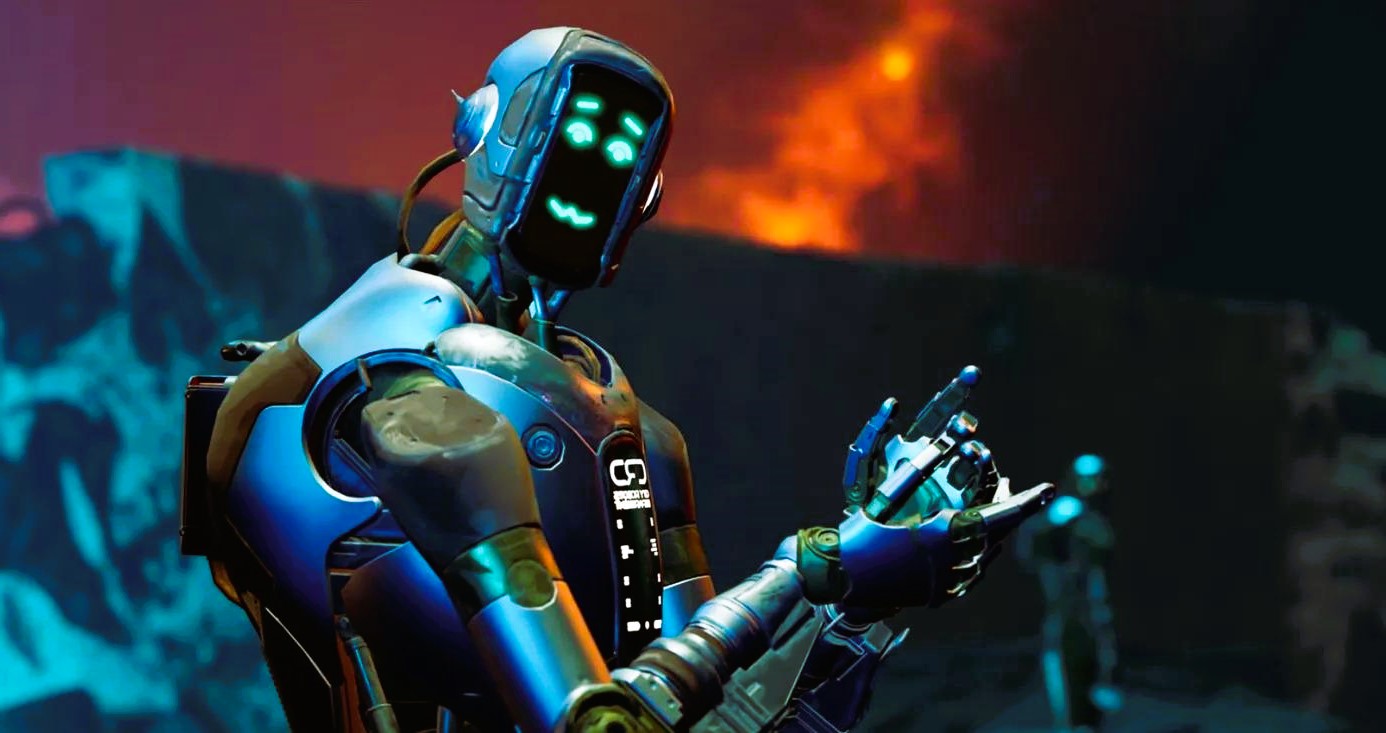Alright, let’s talk about something that’s making waves in the gaming world right now: AI. No, I’m not talking about your buddy who thinks they can predict the entire plot of every game before it even drops. I’m talking about the kind of AI that powers the characters you interact with in-game—the ones that no longer just wander around like brain-dead zombies or stand still like props in a set.
We’ve all played games where the NPCs (non-playable characters) felt like glorified mannequins, right? They’d just walk the same path, say the same lines, and be as exciting as a brick wall. But lately? Man, AI is stepping up, and the NPCs are getting smart. So, let’s dive in—what’s really going on behind the scenes when it comes to AI in video games?
Myth 1: NPCs Are Just Pre-Programmed Robots
Reality: They’re Learning, Adapting, and Surprising You
Gone are the days when NPCs were locked into a set of pre-determined actions. Modern AI is all about giving these characters a sense of agency. They aren’t just following a rigid script; they’re reacting, adapting, and sometimes even catching you off guard. The latest tech, like machine learning and neural networks, allows NPCs to behave in ways that feel a whole lot more human.
Take a game like The Last of Us Part II—those enemies? They don’t just mindlessly wander around. They communicate with each other, coordinate attacks, and react to your every move. You think you’re about to sneak up on them, but nope—they’ve got their eyes peeled, and they’re one step ahead. That’s AI in action.
How It Works:
- Pathfinding algorithms: NPCs can navigate complex environments by “thinking” ahead, avoiding obstacles, and reacting to dynamic changes in their surroundings.
- Behavior trees: NPCs have decision-making frameworks that let them react to the player in real-time based on conditions, making each encounter feel fresh.
- Learning-based AI: Some NPCs use deep learning to recognize patterns in your behavior and adjust their tactics accordingly.
Myth 2: AI in Games is Only About Enemy AI
Reality: AI Is Everywhere, Not Just in Combat
Okay, so you think AI in video games is only there to give you a tough fight, right? Well, guess what—NPC AI is creeping into all aspects of the game. It’s not just the bad guys getting smarter; it’s everyone in the world around you.
For example, look at Red Dead Redemption 2. The world feels alive, doesn’t it? NPCs have daily routines. They walk into stores, chat with each other, and even have random conversations when you pass by. They’re not just set pieces; they’ve got their own lives happening. And trust me, the AI behind that isn’t simple—it’s complex and sophisticated.
Even in racing games like Gran Turismo 7, AI is used for more than just racing. It’s about adapting to player skill and adjusting the difficulty in real-time, keeping you engaged without feeling too easy or frustrating.
Applications of AI Beyond Combat:
- Dynamic storytelling: Characters react to player choices, making the world feel responsive and alive.
- World-building: NPCs in open-world games follow routines, visit places, and even notice when you do something out of the ordinary.
- Adaptive gameplay: AI adjusts in real-time to make sure you’re getting the right level of challenge. Read our article on how to learn game design without being a programmer.
Myth 3: AI Is Just for Single-Player Games
Reality: AI in Multiplayer? Yep, It’s There, Too
Hold on, don’t close the tab yet, multiplayer gamers. You probably think AI is something that only affects single-player games, right? Wrong. AI is now playing a big role in online games, too—whether it’s in matchmaking, creating smarter bots for co-op play, or even moderating your chats (for better or worse).
Look at games like Apex Legends and Fortnite—both of these use AI in their matchmaking systems to pair you up with players of similar skill levels, making sure you’re not getting stomped by a pro when you’re just starting out. AI can even create smart bots for when there aren’t enough players to fill up a match, so you’re never stuck waiting.
And then there’s the techy stuff like anti-cheat AI. Games are using machine learning to detect cheaters in real-time, identifying suspicious patterns and banning them before they ruin the fun for everyone.
Multiplayer AI Roles:
- Matchmaking: AI helps balance skill levels in online games.
- Smart bots: AI fills empty player slots with bots that adapt to your playstyle.
- Anti-cheat systems: AI scans for unusual gameplay patterns to keep things fair.
Myth 4: The AI is Set in Stone, and It Never Changes

Reality: AI Evolves, and It’s Getting Better Every Day
Now, I know some of you might be thinking, “Well, I’ve played enough games to know how the AI is gonna behave. I can predict it.” And while that’s true in some games, the reality is that AI is constantly evolving. Developers are always tweaking it to make sure NPCs feel fresh and unpredictable.
One of the best parts of AI in modern games is its adaptive nature. Games like Watch Dogs: Legion give NPCs the freedom to act on their own, but as you progress, their behavior gets influenced by how you play the game. And that makes the world feel alive, unpredictable, and real. If you’re sneaky, the NPCs get more cautious; if you’re loud and brash, they’ll take notice and react accordingly.
AI isn’t just being improved within the game; developers are also pushing for better AI tools that streamline the development process, making it easier for small indie studios to incorporate intelligent behaviors without needing a huge budget.
The Future of AI in Games:
- More realism: Expect NPCs to not just act like real people, but think like them too.
- Adaptive narratives: Games will use AI to alter storylines based on how you interact with the world.
- AI-driven procedurally generated content: Worlds and quests will adapt and evolve as you play, creating an ever-changing experience.
So, Why Does This Matter to You?
If you’re a gamer, this means NPCs are about to get way more interesting. You’re gonna face smarter enemies, encounter more dynamic, responsive NPCs, and generally have a much more engaging experience. It’ll feel less like playing against a game and more like you’re interacting with a living world.
For developers, modders, and streamers? This is where you’ll find the magic. Whether you’re testing out new game mechanics or tweaking custom servers, understanding AI gives you the power to create more immersive, intelligent environments that can make your game stand out. And for esports teams? That AI-powered matchmaking? Huge advantage. No more getting stomped by mismatched skill levels.
At the end of the day, AI is transforming video games in ways we never expected. The NPCs? They’re smarter. The worlds? They’re more alive. And the gameplay? It’s getting tighter, smoother, and more reactive than ever before.
Want to get more technical on how this all works? Check out the Game Development Wikipedia page to dive deeper into the nuts and bolts of AI in games.
So next time you’re playing and that NPC throws you for a loop, just remember—it’s not magic. It’s AI getting smarter and changing the game.

